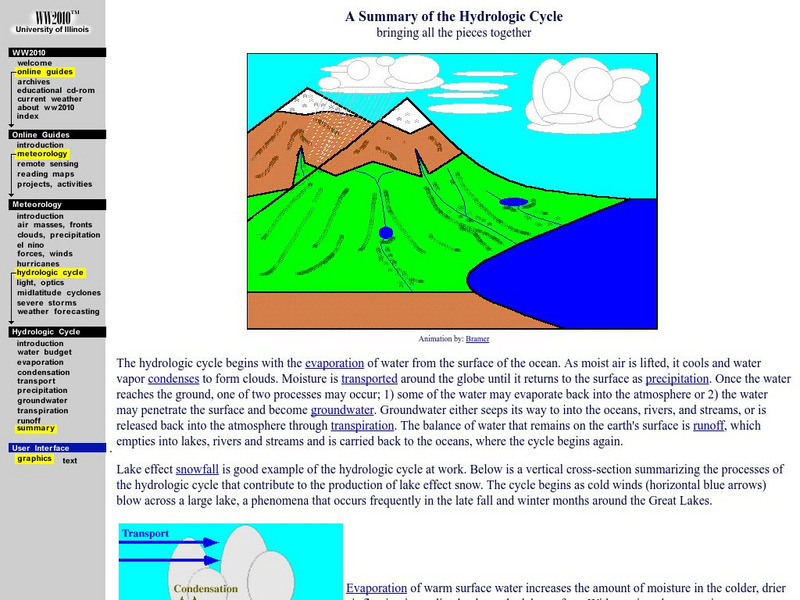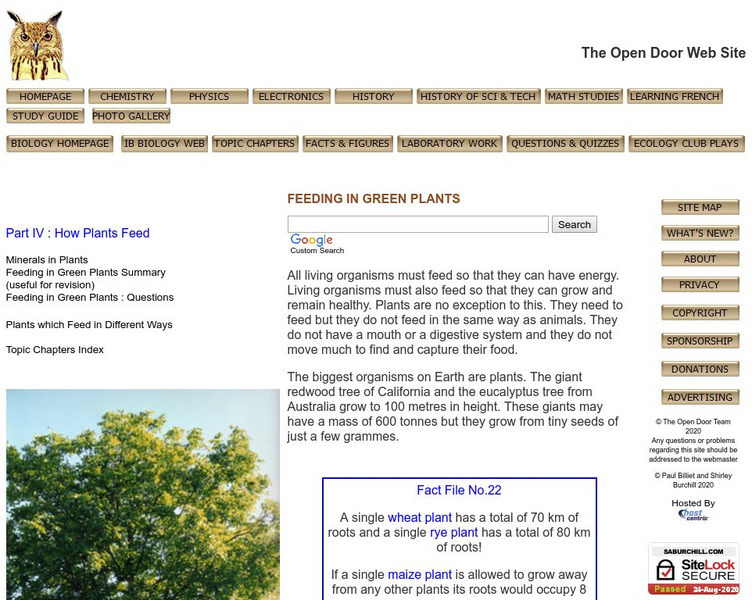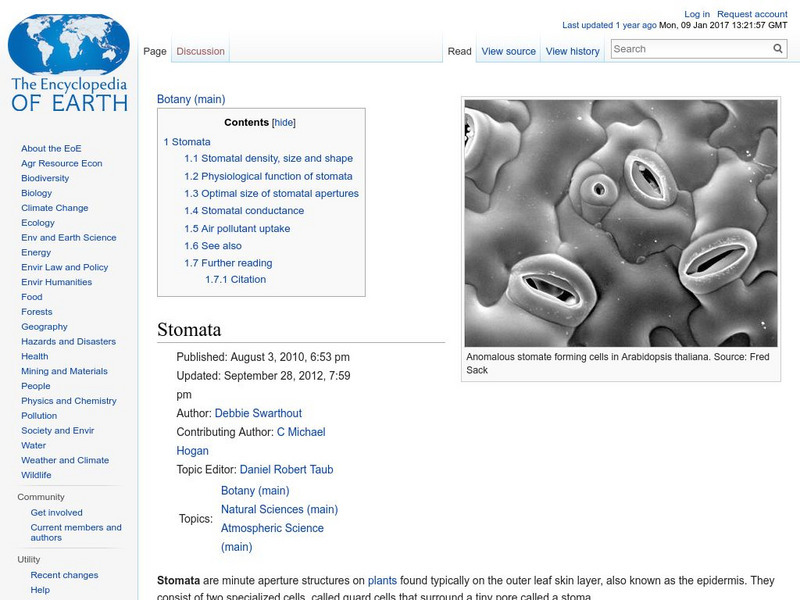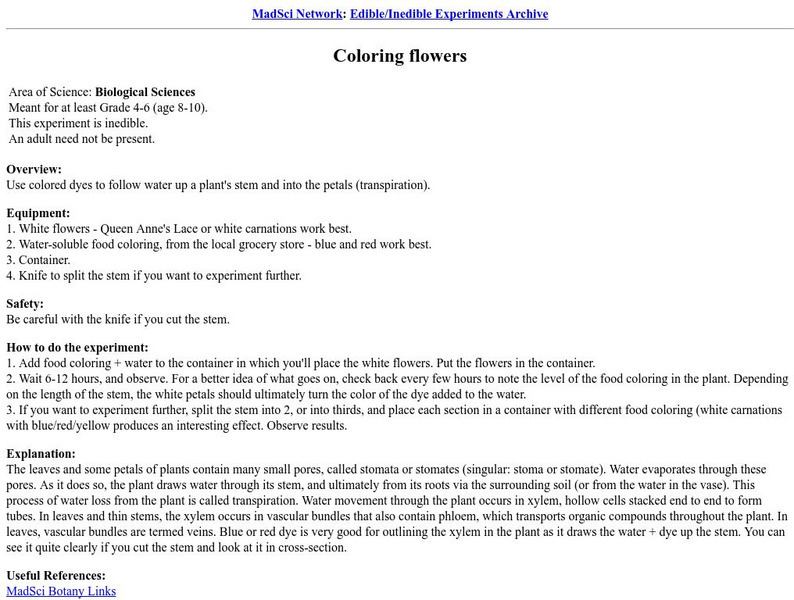University of Illinois
University of Illinois Urbana Champaign: A Summary of the Hydrologic Cycle
Animation and text explain the water--or hydrologic--cycle, which is the process that water undergoes in nature.
Open Door Team
Open Door Web Site: Feeding in Green Plants
Learn how plants absorb water through either root systems or vessels in their stems with this site. Also understand how important water is to the make up of the plant!
Encyclopedia of Earth
Encyclopedia of Earth: Botany: Stomata
Article discussing the structure, function, and efficiency of stomata, the apertures on plants' leaves that regulate gas and water vapor exchange during photosynthesis. (Published: August 3, 2010)
TeachEngineering
Teach Engineering: Life Science
This unit covers the processes of photosynthesis, extinction, biomimicry and bioremediation. In the first lesson on photosynthesis, students learn how engineers use the natural process of photosynthesis as an exemplary model of a complex...
NOAA
Noaa: National Weather Service: Simplified Hydrologic Cycle
The National Weather Service offers information on the processes that make up the water (hydrologic) cycle, including evaporation and transpiration, precipitation, run-off, infiltration, and percolation. Has a good illustration and...
Biology Pages
Kimball's Biology Pages: Transportation in Plants
A very good explanation of the processes of water transport in plants. Includes graphics that accompany this very detailed explanation.
Museum of Science
Museum of Science and Industry: Online Science: Color Changing Carnations
A popular plant experiment where food coloring is added to the water that flowers sit in, to see how this affects the color of the flowers. It demonstrates how water travels through the xylem of a flower stem.
MadSci Network
Coloring Flowers
Demonstrate plant transpiration for your students using a white flower and colored water. This is an easy experiment that shows how a plant takes in water and nutrients.
BiologyWise
Biology Wise: Stomata Function
Describes stomata and their functions in photosynthesis, transpiration, and regulation of water retention and loss by plants.
BiologyWise
Biology Wise: Types of Photosynthesis
This resource describes three different types of photosynthesis that take place in plants and the plant characteristics and environmental conditions that determine which type takes place.
Science Bob Pflugfelder
Science Bob: Add Color to Flowers Using Science
Use this experiment to discover how to make colored flowers using common supplies with details on why it works.
TeachEngineering
Teach Engineering: Biodomes
Students explore the biosphere's environments and ecosystems, learning along the way about the plants, animals, resources and natural cycles of our planet. Over the course of lessons 2-6, students use their growing understanding of...
TeachEngineering
Teach Engineering: Photosynthesis Life's Primary Energy Source
This lesson covers the process of photosynthesis and the related plant cell functions of transpiration and cellular respiration. Young scholars will learn how engineers can use the natural process of photosynthesis as an exemplary model...








